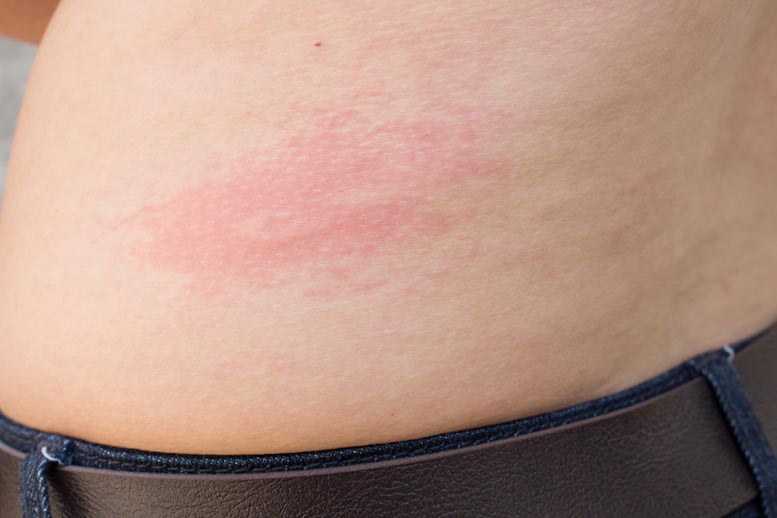Hives appear as red, raised, and itchy patches of spots on the skin. The primary cause of hives is attributed to the immune system releasing the hormone known as histamine. The immune system normally secretes histamine as a way to protect the body against a potential pathogen.
Most people with acute hives break out in these rashes due to food allergies, the use of certain medications, and other allergens/irritants. Temperature fluctuations and hot or cold weather can also lead to the appearance of hives. In some cases, hives may be a symptom of a more serious underlying condition such as a thyroid condition or lupus.
Working with your physician to put together an effective treatment plan to keep hives at bay is essential. However, here are some non-medicinal strategies you can try to manage and prevent breakouts of hives.
Stress Management
Strong emotions, including too much anxiety and stress, can contribute to the development or the worsening of hives in some individuals. Finding ways to lower your stress levels can go a long way in preventing hives from returning. Exercising, carving out time to relax and read a book, taking walks, and meditation are excellent ways to manage your stress.
Trigger Identification
Perhaps the most effective way to prevent breakouts of hives is to identify the allergens or irritants that trigger your reaction. Becoming familiar with the ingredients used in self-care and beauty products is one way to close in on irritants that may give you hives. Some food allergies and environmental triggers such pollen and dust mites are also common culprits.
Diet Modification
As mentioned above, food allergies can contribute to hives. Common food allergies such as nuts, dairy, shellfish, and soy can easily trigger the immune system response that results in a breakout of hives. Identifying and eliminating foods that may trigger your skin reaction is a highly effective way to prevent hives.
Medication Adjustment
Some drugs can also cause allergic reactions and by extension hives. It is important to see your doctor if you suspect a medication you are on is the reason behind your hives. There may be another version of the same medicine your doctor can switch you to that may not cause hives as a side effect. Some medications that can potentially result in skin reactions such as hives include NSAIDs like ibuprofen, as well as certain antibiotics like .
Weather Watch
Sudden and extreme fluctuations in weather and body temperature can also lead to hives in some individuals. If you notice that you break out in hives because of weather changes or extreme temperatures, it is essential to bundle up in cold weather and keep cool in hot weather by avoiding direct sunlight.
Featured Image: Depositphotos/© wasansos1



